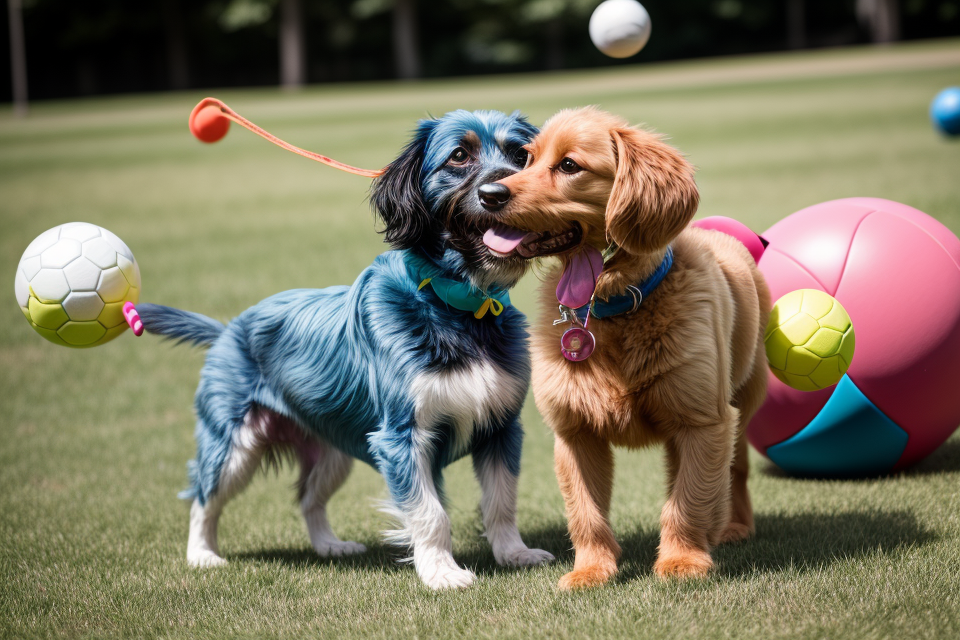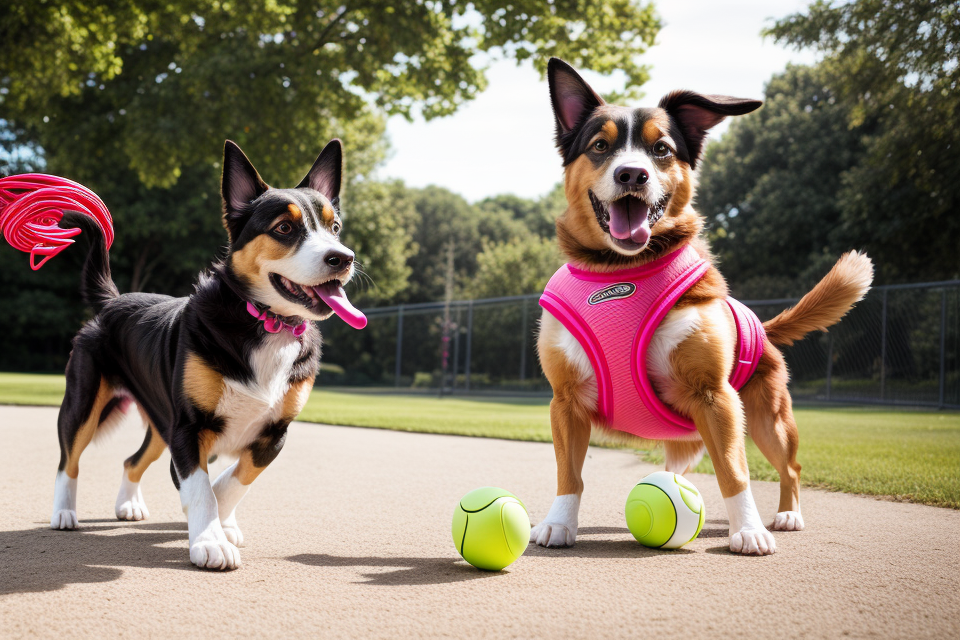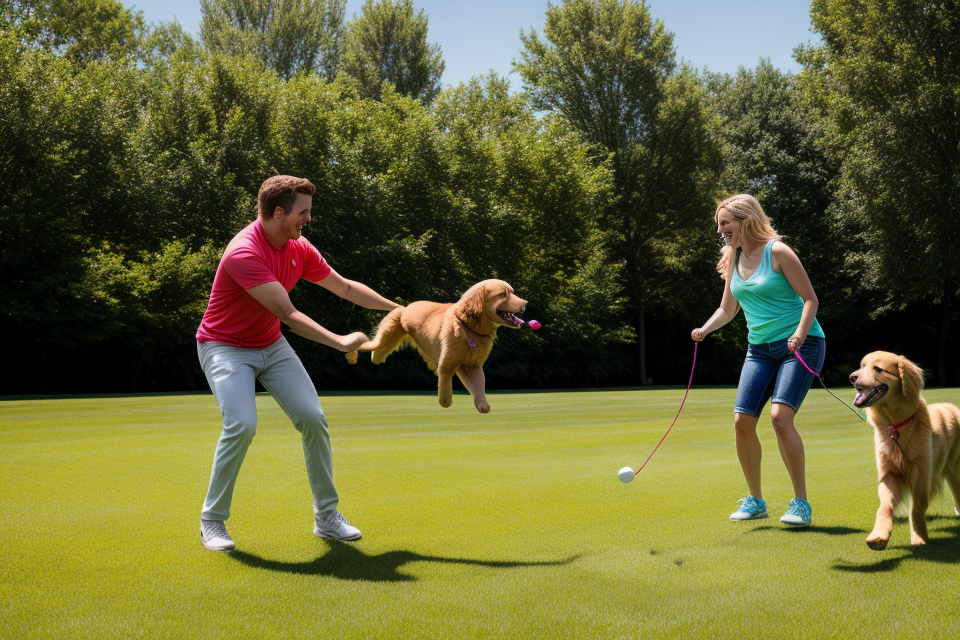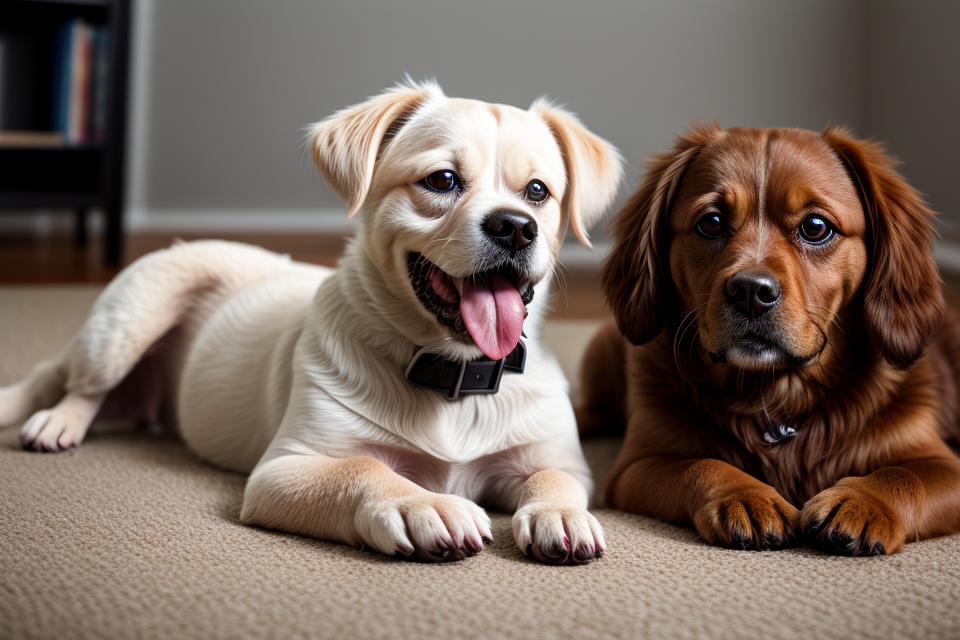Dogs are known to be man’s best friend, and it’s no surprise why. They bring so much joy and happiness into our lives, and we want nothing but the best for them. When it comes to providing mental and physical stimulation for our furry companions, fetch toys are an excellent choice. In this article, we will explore the many benefits of fetch toys for dogs and why they are a great addition to any dog owner’s arsenal. From improving cognitive function to providing hours of entertainment, we’ll cover it all. So, let’s dive in and discover what makes fetch toys an excellent choice for your dog’s mental and physical stimulation.
The Benefits of Fetch Toys for Dogs
Enhances Mental Stimulation
Fetch toys offer a plethora of benefits for your dog’s mental stimulation. By engaging in fetch games, dogs can improve their problem-solving skills, foster creativity and curiosity, and experience sensory stimulation.
Improves Problem-Solving Skills
Fetch toys are an excellent tool to enhance your dog’s problem-solving skills. Many fetch toys require dogs to use their cognitive abilities to figure out how to retrieve or release the toy. For example, a dog might need to push a button or pull a string to release a toy hidden inside a plush figure. This type of interactive play encourages dogs to think critically and use their instincts to solve the puzzle.
Fosters Creativity and Curiosity
Fetch toys also foster creativity and curiosity in dogs. When dogs play with fetch toys, they often come up with their own unique ways to play with the toy. For example, a dog might use their paw to knock a small ball into a bucket or roll a ball along the ground using their nose. This type of play encourages dogs to use their imagination and be creative in their approach to play.
Provides Sensory Stimulation
Fetch toys also provide sensory stimulation for dogs. Many fetch toys have different textures, sounds, and tastes that dogs can explore. For example, a dog might play with a toy that has a squeaker, which provides auditory stimulation. Or, a dog might chew on a rope toy, which provides tactile stimulation. These different sensory experiences help keep dogs engaged and interested in playing with the toy.
Overall, fetch toys are an excellent choice for dogs who need mental stimulation. By offering a variety of benefits, such as improving problem-solving skills, fostering creativity and curiosity, and providing sensory stimulation, fetch toys are a fun and engaging way to keep dogs mentally stimulated and happy.
Boosts Physical Health
Fetch toys provide dogs with a fun and engaging way to exercise their bodies, which is essential for maintaining their physical health.
Supports Cardiovascular Health
Engaging in physical activity such as fetch helps to increase a dog’s heart rate, which in turn supports their cardiovascular health. Regular exercise helps to strengthen the heart and improve blood circulation, reducing the risk of heart disease and other cardiovascular problems.
Enhances Strength and Coordination
Fetch toys also help to enhance a dog’s strength and coordination. The act of running after and retrieving a toy requires the use of various muscle groups, including the legs, core, and shoulders. Regular play with fetch toys can help to build muscle tone and improve a dog’s overall physical fitness.
Reduces Stress and Anxiety
In addition to physical benefits, fetch toys also provide mental stimulation for dogs, which can help to reduce stress and anxiety. Playing with fetch toys can help to distract dogs from negative experiences and provide a positive outlet for their energy and emotions.
Overall, incorporating fetch toys into your dog’s daily routine can provide numerous benefits for their physical and mental health.
Different Types of Fetch Toys for Dogs
Soft Toys
Advantages
- Soft toys are gentle on your dog’s mouth and teeth, reducing the risk of injury.
- They are often filled with soft, squishy materials that are irresistible to dogs, providing them with a sense of satisfaction and joy.
- Soft toys can be easily picked up and thrown by the owner, making them ideal for playing fetch games in the park or at home.
- They are often designed with different textures and colors, which can help to stimulate your dog’s senses and keep them engaged.
Disadvantages
- Soft toys may not be as durable as other types of fetch toys, and may need to be replaced more frequently.
- They may not be suitable for dogs who tend to be aggressive or destructive with their toys, as they may shred or destroy them easily.
- Soft toys may not provide the same level of mental stimulation as other types of fetch toys, such as interactive puzzle toys or treat-dispensing toys.
Interactive Toys
- Interactive toys for dogs provide a fun and engaging way for pet owners to play and interact with their pets.
- These toys can help strengthen the bond between pets and their owners, while also providing mental stimulation for the dog.
- Many interactive toys for dogs are designed to challenge the dog’s problem-solving skills and encourage them to use their natural instincts, such as their sense of smell or ability to retrieve objects.
-
These toys can also help satisfy a dog’s natural desire to play fetch, which is a great form of exercise for them.
-
Some interactive toys for dogs can be expensive, which may not be feasible for all pet owners.
- Some dogs may become bored with these toys quickly, especially if they are not challenging enough for the dog.
- Some interactive toys may require special training or instructions for the dog to learn how to use them properly, which may not be easy for all pet owners.
- Some interactive toys may require a lot of space to play with, which may not be feasible for all pet owners who live in small apartments or homes.
Hard Toys
Hard toys are made of materials such as rubber, plastic, or metal and are designed to be durable and long-lasting. These toys are perfect for dogs that like to chew and play tough.
- Durable and long-lasting
- Ideal for dogs that like to chew
- Provides mental stimulation
-
Can be easily cleaned and maintained
-
May not be suitable for dogs that are not aggressive chewers
- May not provide as much physical stimulation as other types of toys
- Some dogs may be able to break or destroy the toy easily
Overall, hard toys are a great option for dogs that need a durable and long-lasting toy that can withstand their chewing and playing habits. While they may not provide as much physical stimulation as other types of toys, they can still provide mental stimulation and help satisfy a dog’s natural instinct to chew.
How to Choose the Right Fetch Toys for Your Dog
Cons
When choosing fetch toys for your dog, it’s important to be aware of the potential cons or drawbacks that may come with certain types of toys. Here are some things to consider:
- Durability: Some fetch toys may not be durable enough to withstand repeated play sessions, especially if your dog is a powerful chewer or likes to play rough. It’s important to choose toys that can stand up to your dog’s play style and preferences.
- Cost: Fetch toys can range in price from very affordable to quite expensive, depending on the type of toy and the materials used. If you have a tight budget, you may need to choose cheaper options or prioritize certain types of toys over others.
- Safety: While most fetch toys are safe for dogs, there are some potential hazards to be aware of. For example, small parts or pieces can break off and pose a choking hazard, or certain materials may not be safe for dogs to chew on. It’s important to read reviews and do your research to ensure that the toys you choose are safe for your dog.
- Appropriateness for your dog’s size and breed: Some fetch toys may be too small or too large for your dog, depending on their size and breed. It’s important to choose toys that are appropriate for your dog’s size and play style to ensure that they can enjoy playing with the toy safely and comfortably.
By considering these potential cons, you can make an informed decision when choosing fetch toys for your dog and ensure that they are safe, durable, and appropriate for their needs and preferences.
FAQs
1. What is fetch and why is it good for dogs?
Fetch is a game in which a dog retrieves an object thrown by its owner. It is a natural instinct for dogs to chase and retrieve objects, and playing fetch allows them to satisfy this instinct while also providing mental and physical stimulation. It helps to keep dogs physically fit, mentally alert, and is a fun way to bond with your pet.
2. What type of toys should I use for fetch?
Any type of toy can be used for fetch, but it’s important to choose toys that are appropriate for your dog’s size and strength. Soft toys like balls, frisbees, and ropes are good choices for fetch, as they are easy for dogs to pick up and carry. You should also consider the durability of the toy, as some toys may not withstand the rough play of a dog during fetch.
3. How often should I play fetch with my dog?
Playing fetch with your dog is a great way to provide mental and physical stimulation, but it’s important not to overdo it. It’s recommended to play fetch for short periods of time, no more than 10-15 minutes at a time, and to give your dog breaks in between games. Over-exerting your dog during fetch can lead to physical strain and injuries.
4. Can fetch be played indoors or only outdoors?
Fetch can be played both indoors and outdoors, depending on your preference and the availability of space. Indoor fetch can be played in a large room or backyard, while outdoor fetch can be played in a park or open field. It’s important to make sure that the area is safe for your dog and that there are no obstacles or hazards that could cause injury.
5. Is fetch suitable for all dogs?
Fetch is generally suitable for most dogs, but it’s important to consider your dog’s individual needs and abilities. Some dogs may have physical limitations or health conditions that prevent them from playing fetch, while others may have high energy levels and enjoy more intense play. It’s important to consult with your veterinarian to determine what type of physical activity is appropriate for your dog.



